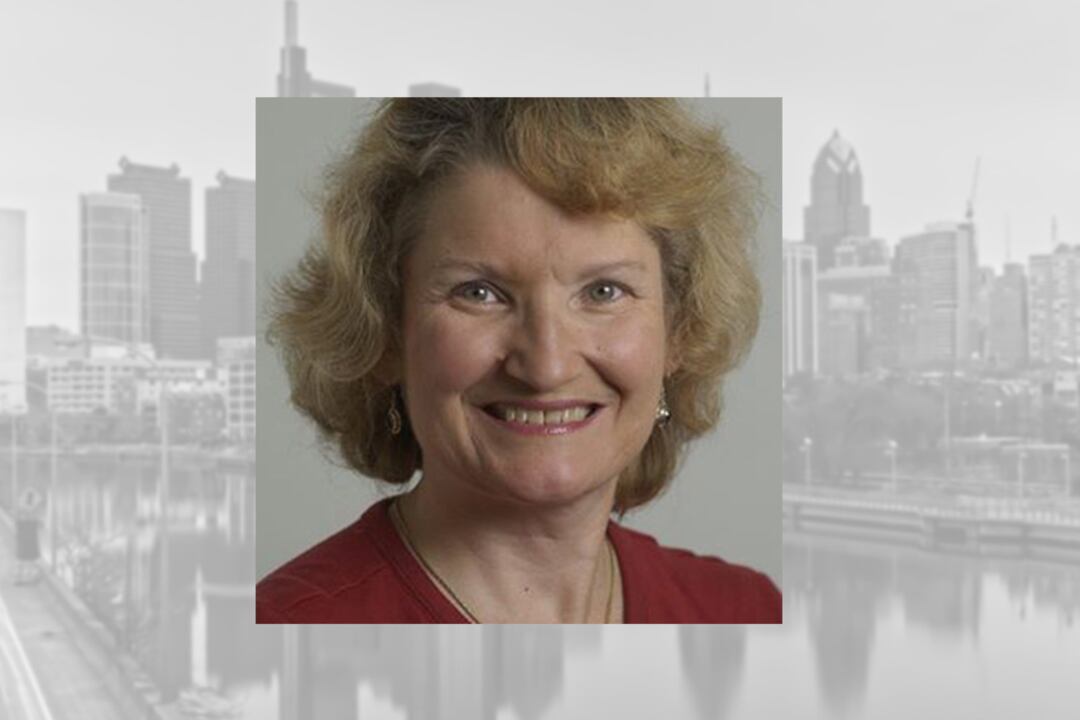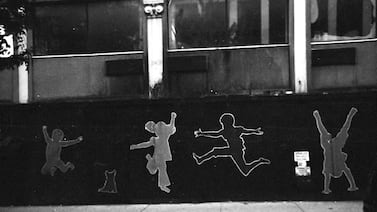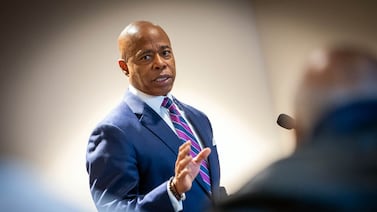Today we are proud to launch Chalkbeat Philadelphia, the latest community in our growing network of local newsrooms devoted to education journalism.
Typically on launch day, we introduce readers to the journalists who will be providing Chalkbeat’s rich coverage. But this is no typical launch, since Chalkbeat Philadelphia is opening thanks to our partnership with the Philadelphia Public School Notebook, which has a 26-year history of education coverage.
And Dale Mezzacappa, our first Philadelphia senior reporter, needs no introduction to observers of the city’s schools. Dale is the Notebook’s longtime contributing editor, and before that she was the Philadelphia schools’ beat reporter and senior education writer for the Philadelphia Inquirer.
We asked Dale to reflect on her time covering this crucial beat and to look ahead at what she hopes to accomplish at Chalkbeat Philadelphia.
What makes covering Philadelphia schools special? Philadelphia is a city of neighborhoods, each with its own character, and a treasure trove of interesting stories.
On the school beat, a reporter can profile a great principal one day, write a complicated finance story the next, have fun in a kindergarten classroom after that, and unearth some juicy political intrigue before the week is out. I’ve covered test-cheating scandals and personal triumphs, inspirational teachers and union battles.
Philadelphia’s district was run by the state for 17 years — a takeover precipitated in 2000 when the then-superintendent suggested (correctly, based on the data) that the state funding system discriminated by race. He used the word “apartheid.” This insulted the then-governor, who responded by taking the district over. State control was sold as a rescue mission to pull the city schools out of financial and academic distress, but it was during this period that the district was so underfunded that one year it laid off all its counselors and nurses. In short: never a dull moment.
You’ve covered education for many years. Why have you stuck with this beat? At some point I realized that education ranks with the biggest and most important stories one could cover. For one thing, literally every person has a stake in it. But the governmental, economic, and tax systems are counterproductive to its mandate to educate all students to their potential.
Years ago, the big narrative was that America spent more on education than any other country in the world but still ranked below other nations in achievement. There was much hand wringing. At the Education Writers Association national conference around that time, Andreas Schleicher, a German education expert, looked at the American system with an outsider’s eye and pointed out why the country wasn’t getting its money’s worth. His reasoning holds up today, and it is not that low-performing districts waste money, as critics charge. It is that the country does not allocate its funds efficiently. Despite efforts to balance wealth disparities through state education aid, the tax and funding mechanisms in almost all states lavish resources on the well-off while denying crucial services to many who need them. This is not a recipe for success. Most other countries do what logic, good sense, and economic efficiency would dictate: they spend more money on those with the greatest needs, and they don’t tie education quality so closely to where a person lives.
Bluntly, the American system doesn’t just tolerate racial and economic segregation and inequity, it is built on it. And it sucks all of us in. Without a second thought, individual families build their lives around the idea of “moving to a good school district,” which most often means leaving one that has many low-income students (and usually, students of color) for one that has fewer. Teachers are paid relatively poorly compared to other professions, and then — again, by design — the least experienced are sent to do the toughest jobs. To top it off, when looking for ways to “reform” and “fix” poor performing districts, the system is absolved, racism is ignored, and instead the people who work in and run the “low-achieving” schools — not to mention parents and students themselves — are blamed for the disappointing outcomes.
This way of life is so entrenched that changing it in any substantive way has always seemed impossible. But maybe now, as people begin to confront the country’s original sin, there’s a chance that avenues of change might open up to make the system more fair, equitable — and, by the way, as Schleicher pointed out, more efficient.
What is a favorite story (or stories) that you wrote or a character from an article? I spent 13 years, on and off, following one group of West Philadelphia sixth graders who were promised a free college education by George Weiss, a wealthy philanthropist who was a graduate of the University of Pennsylvania. The Belmont 112. It was relatively early in my time covering the beat and, in retrospect, I had a lot to learn. The participants agreed to it, but in many ways the project was terribly invasive. The promise was viewed by many at the time (including some of my editors) as an automatic ticket to success. It wasn’t.
I tried to document as incisively and sensitively as I could the barriers these students faced despite the offer, but I fear that didn’t always come through.
Several of the boys went to prison. It was during one of the peak eras of teen pregnancy; the first girl to have a child gave birth at 13. Within the first few years six or seven of the boys were killed by gun violence, most caught up in the city’s vicious drug trade. I found myself at several funerals, but also attended the Tuskegee graduation of one student who literally became a rocket scientist with a career at NASA. He had an amazing mother, and that story ran on Mothers’ Day.
These students are now in their 40s, some are my Facebook friends, and whether they earned a degree or not, from what I can tell many went on to do quite well, establishing careers and families and becoming involved in civic life in their communities. Many are still connected to each other, to the staff who worked with them, and to Weiss.
The program still exists — it is called Say Yes to Education. Realizing that the godlike promise to randomly chosen individuals is not enough to truly change lives in such an inequitable system, Say Yes has evolved to work with entire cities to improve social services and school districts while offering last-dollar scholarships to all their public high school graduates.
What are some of the topics that are top of mind for you to cover in the coming months? Chalkbeat Philadelphia will continue the legacy of the Notebook, which was founded in 1994 by parents, teachers, and others who felt that the mainstream media (me, at the time), did not pay enough attention to the voice of people in the communities. The Notebook was “explicit about its belief that public schools play a vital role in a democratic society, its commitment to support greater quality and equity in public education, and its support for a strong voice for parents, students, educators, and communities in school improvement...a watchdog [that] monitors and questions educational officials and other public officials on their commitment to these same values.” To fulfill its mission, the Notebook always hewed to the highest standards of accuracy, fairness, context, and storytelling.
Chalkbeat’s mission is “to provide deep, local coverage of education policy and practice to inform the decisions and actions that lead to better outcomes for children and families, especially those in low-income communities.” I don’t see a lot of daylight between those two statements.
The story of education in the U.S. is one of equity, quality, and opportunity. I hope Chalkbeat Philadelphia will find stories that will make a difference for students, parents, and communities in the city. And we want to hear from you.
How can people get in touch with you?
They can email me at dmezzacappa@chalkbeat.org or follow me on Twitter: @dalemezz. Readers can sign up for our weekly newsletter here.








